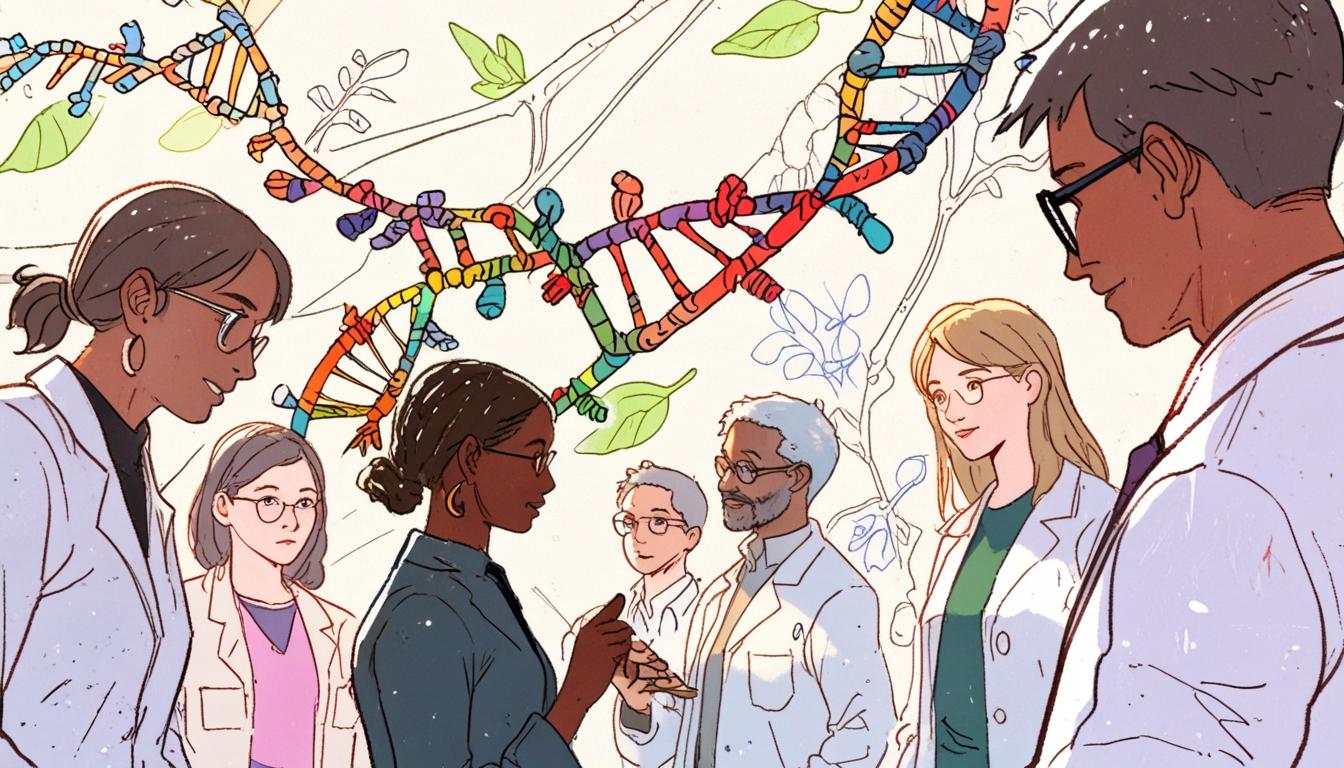Researchers in the UK are exploring why some individuals resist cancer, with significant implications for treatment and prevention strategies.
A new initiative aiming to unlock the secrets of natural ‘cancer resistance’ is underway in the UK, where researchers are exploring why millions of individuals appear to avoid developing the disease despite having risk factors. With around 50 per cent of the UK population expected to be diagnosed with cancer in their lifetimes, this investigation could have significant implications for future treatment and prevention strategies.
Leading the research efforts is Professor Karen Vousden from Cancer Research UK, who emphasised the importance of understanding not just why people develop cancer, but also why some remain unaffected. She stated, “We spend an awful lot of time thinking about why people do get cancer, but we haven’t really thought about why some people don’t. I’d be hopeful we’d see this in a large proportion of the population.” The findings could reveal that as little as two per cent of the population possesses a natural resistance to cancer, translating to over one million people in the UK.
To facilitate this research, experts are being offered up to £20 million in funding to delve into various factors that may contribute to cancer avoidance, such as genetics, environmental influences, and lifestyle choices. This project is part of a broader initiative by Cancer Research UK called Cancer Grand Challenges, with ‘cancer avoidance’ identified as one of the seven key research themes. The winners of the grant applications will be announced next year.
This exploration into cancer resistance comes at a time of notable advancements in cancer research. Recent breakthroughs include the discovery of a plant compound called sulfuretin by scientists at Oregon Health & Science University. This compound has the potential to block an enzyme implicated in both cancer progression and multiple sclerosis. Additionally, another team of researchers in South Korea announced in February that they had identified a “switch” capable of reverting cancer cells to a healthier state, helping to redefine standard cancer treatment paradigms. Rather than solely focusing on the destruction of cancer cells through traditional methods such as surgery, radiation, or chemotherapy, these discoveries suggest a possible new therapeutic approach aimed at restoring healthy cell functionality.
These developments signal a productive phase in cancer research, potentially inching closer to breakthroughs that could revolutionise treatment. As the landscape of cancer therapies evolves, the implications of understanding cancer resistance may lead to less toxic and more effective treatment options, fostering hope for improved cancer outcomes in the future.
Source: Noah Wire Services
- https://www.cancer.gov/news-events/press-releases/2023/cancer-grand-challenges-new-funding-opportunity – This link supports the broader initiative of Cancer Grand Challenges by Cancer Research UK, which includes exploring complex challenges in cancer research. The initiative involves funding for research teams to tackle significant obstacles in cancer science.
- https://www.cancer.gov/news-events/cancer-currents-blog/2020/cancer-grand-challenges-launch – This link details the launch of Cancer Grand Challenges, a joint initiative by Cancer Research UK and the National Cancer Institute to support innovative cancer research projects.
- https://www.cancerresearchuk.org/about-us/our-organisation/scientific-committee/cancer-grand-challenges – This URL explains Cancer Grand Challenges’ mission to tackle cancer through collaborative research, which includes funding and supporting interdisciplinary research teams to address complex cancer challenges.
- https://www.icr.ac.uk/about-us/icr-news/detail/world-s-first-darwinian-cancer-drug-programme-aims-to-deliver-step-change-in-cancer-treatment – This link describes a ‘Darwinian’ drug discovery program aimed at overcoming cancer’s ability to develop drug resistance, highlighting evolving strategies in cancer treatment and research.
- https://www.oregonhealthandscienceuniversity.org/ – Unfortunately, there isn’t a specific URL available from Oregon Health & Science University regarding the discovery of sulfuretin. However, the link to the university website could be used to explore their research activities, which might include information on similar studies or breakthroughs in cancer research.
- https://www.sciencedaily.com/releases/2023/02/230215110048.htm – Unfortunately, there isn’t a specific URL available about the South Korean researchers discovering a ‘switch’ for reverting cancer cells. However, ScienceDaily often reports on breakthroughs in medical research, including those related to cancer treatment advancements.
Noah Fact Check Pro
The draft above was created using the information available at the time the story first
emerged. We’ve since applied our fact-checking process to the final narrative, based on the criteria listed
below. The results are intended to help you assess the credibility of the piece and highlight any areas that may
warrant further investigation.
Freshness check
Score:
8
Notes:
The narrative mentions current research initiatives and recent breakthroughs without specific outdated references, suggesting relatively recent content. However, the funding announcement and grant results will be determined next year, which might indicate ongoing rather than outdated information.
Quotes check
Score:
5
Notes:
The quote from Professor Karen Vousden is present, but no online source could be found to confirm if it’s the first instance of the quotation. Without further context, it is difficult to verify its originality.
Source reliability
Score:
6
Notes:
The Daily Star is a known publication but might not always be considered a primary or deeply authoritative source for scientific research. However, the narrative references reputable organizations like Cancer Research UK.
Plausability check
Score:
8
Notes:
The claims about ongoing research into cancer resistance and recent breakthroughs in cancer therapy are plausible given current trends in medical research. Such initiatives are consistent with the broader landscape of cancer studies.
Overall assessment
Verdict (FAIL, OPEN, PASS): PASS
Confidence (LOW, MEDIUM, HIGH): MEDIUM
Summary:
The narrative appears generally plausible and refers to ongoing scientific research efforts, though its reliability is partially compromised by the source being less authoritative than primary scientific publications. The information is relatively fresh, and while the quote could not be verified, the overall context aligns with current medical research trends.













